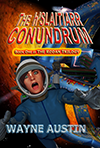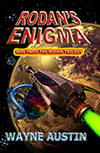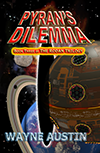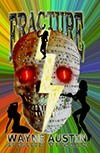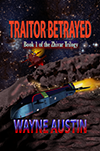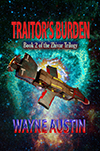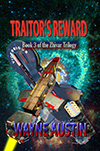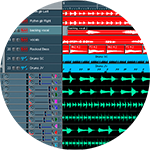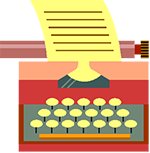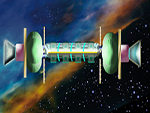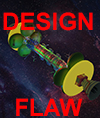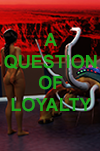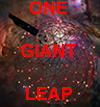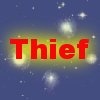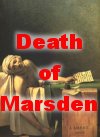
It’s a Weird Universe
The Life and Times of the World’s Dumbest Genius
Novels
Okay, this is where I suck you in ... er, I mean convince you that my novels are worth buying.
Writing novels is what I’ve wanted to do full time since the beginning of 2000. I’d started thinking about it while out of work. There was a sharp downturn in the IT market in Australia in general and in Adelaide in particular, as the main employers wound down their millennium bug projects, and it took a few months for the contract agencies to realize that the downturn was going to last at least a year or more. Unfortunately, I had decided to take a couple of months off. That ended up being eighteen months.
So there I was looking for something to while away my time and I had an idea for a story. One of the things that had got me thinking about writing a novel was the fact that on all the sci fi shows I watched, like the Star Trek shows, Stargate, and in the movies, the aliens were mostly variations on humans. (That’s also the case in many of the SF novels I’ve since read.) They looked humanish¹, acted humanish, had human-like societies and were easy to talk to, in fact they often talked just like us. But why did that have to be the case?
With that, I designed my own alien, right down to its internal biology, its social structure, its technology and civilization. It doesn’t breathe oxygen, its nothing like us. In fact, that’s half the fun — world building. I’ve found that defining the technologies in a universe, the weaknesses in particular, helps drive the plot in that the characters also have to overcome problems imposed by these limitations.
The basis, behind any story, as I understand it, is to study some aspect of the human condition. In the TV shows and the movies and in most SF books I’ve read, this has been reflected in the actions and reactions of the main characters to the surrogate human aliens and their surrogate human societies. But it can also be seen in the actions and reactions of human characters to non-human totally alien characters. In a sense it is easier to make aliens in a human mold because that is all we are familiar with. It is much harder to create aliens, which are truly non-human in character. But this is what I have tried to do.
The reason is simple. This is my way of exploring the unknown by applying all the knowledge I’ve soaked up through reading popular scientific and technological journals over the past thirty years to my fertile imagination.
I mulled it over through the latter months of 1999 until, around Christmas time, I realized I had fleshed out a whole story. With nothing to lose, I decided to go for it and spent January knocking up first a novel outline and then chapter outlines. After that it took just over three months to knock out a 120,000 word first draft of The h’Slaitiarr Conspiracy. Tada! Finished? Not!!!!
Fortunately, I’m not a stupid genius (although most who know me — all right everyone who knows me — might disagree on both counts: the not stupid and the genius) and I knew it was a draft and not a completed story. With that revelation, I decided that perhaps I should learn how to write.
It seemed a good idea at the time.
I bought a couple of books. One was The Idiot’s Guide to Creative Writing from which I learned that the title was apt: you had to be an idiot to buy it. The second book was far more useful. It was called Writing the Blockbuster Novel by Albert Zuckerman and it went through the whole process from coming up with an outline though chapter outlines to writing the first draft and then revising, all with useful examples from novels like Gone With The Wind and The Godfather.
It was though this I realized I had some plot shortcomings. A couple of major revisions later and, at 140,000 words, I thought I was finished. The manuscript got sent off for a manuscript assessment and I began to think about a second novel to follow up the fame and fortune that was soon to come my way....
Ah, manuscript assessments, I’ve had two for this novel. They can be both useful and frustrating. The assessors will point out major problems but in a way that is not useful to the novel’s author. They will use sweeping and at times vague generalizations while only plucking examples of minor nitpicks from the manuscript. I’m sure I would have saved quite a lot of time if they had pointed to certain pages in the manuscript to highlight major shortcomings in style. I don’t expect them to tell me how to fix a problem, that’s not what they do, but if they had pointed out a pages where there was a problem, say with telling rather than showing, or where there wasn’t enough internal monologue from the point-of-view character, etc ... etc. As it was, only after scouring the internet for information on writing, did I come to realize just how much they had both left out or had said in a vague and oblique manner.
But having said that, they were useful, once I knew what they were referring to.
In between those two assessments (the second one last year) I wrote three more novels, a pile of short stories, some which came close to being published, but, alas, no cigar, and spent a couple of years in the online critique group, Critters. When I got the second assessment back, I was halfway through the first draft of the first novel in a trilogy, so I finished that before I went back to my first novel.
I revised it, cutting, slashing and rewriting, and then tried a couple of publishers. With no luck, so I spent three months, poring over both assessments and all the stuff I’d downloaded off the net to work out what I was doing wrong. And I think I got it.
It’s gotten harder and harder to get published over the last decade. Slush piles are gone, except for a few major publishers in the US and UK. You can cold call them and try to spark their interest, but it can still take them five or six months (or in my most recent case, never, even after querying them) to come to a decision, if they are interested. Mostly they want new authors to be represented by an agent. And so, agents have taken the place of slush piles. The publishing houses get to slough off their readers and junior editors and cut costs that way to boost their flagging profits. Many have even dumped their mid-range authors to concentrate on finding the next Harry Potter or DaVinci code blockbuster.
Trouble is, most agents (and the major ones in particular) are not interested in taking on new authors. They’re usually fully committed to their current clients and most aren’t looking to take on unpublished authors unless said authors happen to have an offer from a publisher ... a catch-22 if there ever was one. The only real chance, as I see it, is with new agents who are starting up on their own or trying to establish themselves in an agency. But then you are back in an even bigger slush pile and on top of that, these new agents have still to make the connections with publishers that established agents already have.
I always felt, from early on that I would have to self-publish my first novel, but when I looked into it, I learnt how costly an exercise it would be. The internet is a different story.
For years, ebooks have been seen as a joke by the mainstream publishing industry. But times are a changing. With the advent of broadband, more and more people spend hours on the internet, surfing sites — and not all for porno! Blogs have grown rapidly in popularity and there are tons of sites where short stories can be read for free. These days, authors are not only expected to exploit the internet as a marketing tool, but they are required to. Personally, I can’t see any reason why people won’t read an ebook if they are prepared to spend hours on the computer, visiting sites to read the content there. Think about it. An ebook can be thought of as the equivalent of a collection of related short stories, so why not buy that instead of visiting twenty or thirty sites to read their short stories? And if the ebook is cheap, compared to a printed book, then it’s not much of a gamble. After all, how many books have you bought, only to be disappointed with your purchase?
So that’s how I see it.
The h’Slaitiarr Conspiracy is available as an ebook on lulu.com, and also can be purchased as a hard copy. This is the first in a trilogy and the other two are Rodan’s Enigma and Pyran’s Dilema. I’m completing the final revision of Pyran’s Dilema and all I have to do is the cover art for the final two books before I put them on lulu.com.
The fourth book is Fracture, set in the near future and just needs a final revision to be complete. I finished it in 2004 and tried to get it published, but at 150,000 words it’s too big for a first novel. Still it’s amazing at how much of what I had predicted is started to come to fruition since then. Phones, cable TV, pcs, cameras and the internet are all starting to merge into one device.
My latest novel, Traitor Betrayed (I’ve finished the first draft, but it has been put on hold until I’ve gotten the other four ready and my website up and going) is the first in the Zhivar trilogy. Like the Rodan trilogy, it’s a space opera set in the far future, but in a completely new universe. The technology is different and there are a whole range of alien races of varying technological prowess, all more advanced than humanity’s.
So, I hope to have my first four novels up by the end of the year, but it depends on two things: the artwork as always (because I’m no artist and I’m just floundering) and on whether I’m working or not.
Of course, you can affect that second factor (nudge, nudge, wink, wink) if you care to gamble on five bucks. (US that is.) Please, do it for me. Go on. Make an old man happy.
And who knows? You might just be pleasantly surprised.
You never know....
¹ Humanish is a word I’ve invented. It means not quite as human as human-like. This is the sort of thing we dumb geniuses do. :-))) (excuse my double chins)

